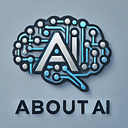The Memory Paradox in the Age of AI: Why Internal Knowledge Still Matters
In an era when nearly any fact is just a search away, it’s tempting to think memorization is obsolete. But a recent neuroscience-informed chapter argues otherwise, making the case that our increasing reliance on digital tools might be quietly decreasing our capacity for deep thought, creativity, and learning.
In “The Memory Paradox: Why Our Brains Need Knowledge in an Age of AI” by Oakley, Johnston, Chen, Jung, and Sejnowski (2025), the authors investigate the cognitive consequences of digital dependency and shifting educational paradigms. Drawing on neuroscience, psychology, and learning theory, they suggest that the reversal of the long-standing Flynn Effect (ie declining IQ scores in developed countries) may be partly due to over-reliance on cognitive offloading and underuse of declarative and procedural memory systems (which enables the conscious recall of facts and concepts, and procedural memory, which supports the automatic performance of skills and routines respectively). The paper challenges the idea that we can “just look it up,” arguing that real learning requires internalized knowledge. The authors emphasize that the transition from declarative to procedural memory achieved through practices like retrieval, spaced repetition, and interleaving is foundational to deep learning. Cognitive offloading short-circuits this transition.
I like this paper for several reasons. I have young kids, I admire the authors (eg Barbara Oakley and Terry Sejnowski), came from Learning how to learn (a course that I highly recommend) and, I think that this paper is particularly relevant these days because it reframes an ongoing debate about technology in education with rigorous neuroscientific grounding. Rather than calling for an unrealistic rejection of digital tools, it advocates for cognitive balance. In the context of AI and easy access to information, the argument is not to go backward but to understand what the brain needs in order to develop and grow. This raises a deeper question about concepts like the second brain (which I really like), in which digital systems are designed to help us capture, organize, and retrieve knowledge externally. While these tools offer immense potential for creative work and knowledge synthesis, they may also reshape the way younger generations learn. For many students today, cognitive offloading is not an exception but a default. The risk is that if external systems become the primary site of memory, learners may never engage deeply enough with ideas to build strong internal schemata. The second brain can be a powerful ally, but only if the first brain is properly trained to use it.
How do you see the balance between internal and external knowledge evolving in education and work? What kind of thinkers are we cultivating when memory is no longer seen as essential?
References
- The Memory Paradox: Why Our Brains Need Knowledge in an Age of AI. Oakley, Johnston, Chen, Jung, and Sejnowski (2025)
- Learning how to learn

